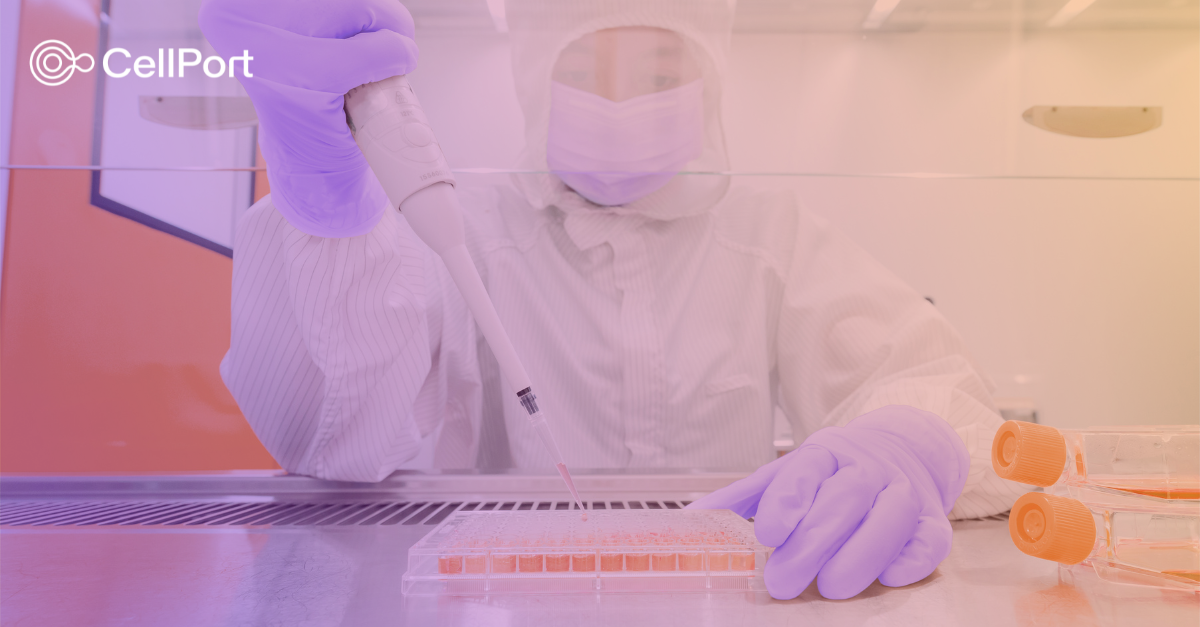Bioprocessing
Reduce lab-to-market time with an end-to-end manufacturing execution system (MES) built for cells.

How CellPort Improves Bioprocessing
Outcomes
Elevate your manufacturing operations with integrated upstream processing (USP) and downstream processing (DSP) – CellPort helps streamline and automate bioprocessing processes, such as:
UPSTREAM PROCESSING
DOWNSTREAM PROCESSING
Why Scientists Love
CellPort
Watch this guided walkthrough to see a scientist use CellPort in running a real protocol.





Explore More Solutions
Cell Culture
Create and maintain optimal conditions for cell growth, health, and productivity.
Learn MoreHow CellPort Works for R&D
Get to know the tools and features that help research-focused labs, CROs, and academic institutions get more control over their lab environment.
Digital Protocols
Choose from a library of pre-built or custom digital workflows and assays.
Learn MoreMaster Batch Records
Streamline cell manufacturing in a safe and compliant lab environment.
Collaboration
Maintain communication integrity online for better transparency, traceability, and training.
Learn MoreCustomized Reporting
Monitor the status of your lab with real-time reporting and data analysis.
Secure Cloud
CellPort is built on the cloud platform trusted by 95% of Fortune 500 companies, designed from the ground up with data integrity in mind.
CellPort Learning Hub
Browse our latest resources to learn more about how CellPort streamlines life sciences.
Products Videos
View all VideosLatest Blogs
View all Blogs

Cell culture involves many detailed steps that require precision and careful tracking. Digital tools, like barcode labels and centralized software, simplify these processes by providing real-time visibility, reducing manual workload, and supporting accurate, efficient workflows. Embracing digitalization is essential for advancing biopharma research with confidence and compliance.
...Read more.png)

Discover how CellPort Software enhances operations by improving efficiency, data management, and compliance. Learn how our platform supports teams in optimizing workflows and driving success across all stages of development.
...Read more

CellPort Software optimizes cell culture management, reducing errors and improving efficiency. Track media, schedule tasks, and access cell history in real-time with barcode scanning and custom reporting.
...Read more

Discover the importance of capturing metadata throughout the cell's journey in the lab, from materials to human observations. By tracking these interactions, researchers gain valuable insights, enhance reproducibility, and optimize workflows. CellPort enables seamless data capture, ensuring traceability, compliance, and efficiency across lab operations.
...Read more











.webp)




.webp)













